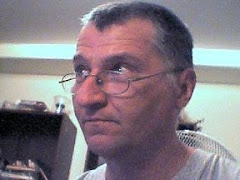At our September meeting on the 15th we had a panel of three people. The topic for the night was concurrent disorders. I was on the panel and I gave a talk at the meeting. Here is my talk:
My Story
I am recovering from schizophrenia, obsessive compulsive disorder, addiction, and alcoholism. The last time I used was on December 6, 1999. On that day I woke up around 8:00 am. As soon as I woke up I started popping pills. I did this all day and half the night. Around 11:00 pm I decided that I had enough. I called up detox but they never had a bed. Despite that the nurse proceeded to talk to me to find out what and how much I used that day. When the conversation was over she told me to go lay down. Five minutes later the phone rang. It was a police officer and he asked me if I would go downstairs and let the police officers in. They wanted to take me to the hospital. I went down and they took me up to emergency.
I stayed there all night. It was a miracle that I survived the night. I came very close to death. In the morning a police officer came up to the hospital and took me home. I arrived home at 6:00 am. As soon as I got in I called detox again. They had a bed and I was there by noon. When it was time for discharge they tried to convince me to go back to my mom's because they knew if I went back to my own apartment I would start using again as soon as I got home. I conceded and went to mom's.
I went through the motions of x-mas. Then in February I decided that I had enough. I couldn't take any more pain, suffering, torture, and torment. I decided to kill myself. For some reason I called up my nurse and told her my intentions. She said, "well, you could give up and kill yourself or you could do something about it." I stayed awake for three days and three nights thinking about what my nurse had said. I am not a quiter so I decided that I wasn't going to give up and kill myself but I was going to do something about my situation. I didn't know what or how. I just was.
Two days after I had made my decision my nurse called me back up and told me about the Beacon Program at the Rehab in Waterville. I was there in a week. Upon arrival Dr. Mulhal told me about clozapine, the advantages and disadvantages of taking it. I thought about it for a couple of weeks and decided to try it. It worked and it is still working today.
Meanwhile I was given some questions to answer. The question was, who is your favorite TV or movie star. I wrote down Rocky. Here is a man who was determined, motivated, and disciplined to push himself beyond the limits and beat the odds. He did just that. In the first movie he beat the odds. Although he never won the fight he still beat the odds. He went the distance with the champ thus being the first man to go the distance.
At the time I answered this question I was applying what Rocky did with my own life. I was determined, motivated, and disciplined to push myself beyond my limits, beat the odds and get well. I did just that.
A few weeks after arriving at the unit I decided that I wanted to attend the Annapolis Valley Work Centre. I applied and was accepted. I went to the Work Centre for a couple of weeks and then stopped attending. I went into a depression. A couple of weeks later they called me from the Work Centre to find out what the problem was. We talked for a while and we came to the conclusion that a full day was to much for me. So I started back again but only did a half day in the woodworking shop. I did really well at that. Then a few months later we decided that I would start attending a full day. So I did and was successful. I continued taking woodworking and also took upgrading, job development, and personal development.
While I was doing all this I was receiving psycho-social treatments for my mental illness and counseling for my addiction problem. When someone has both a mental illness and the disease of addiction both need to be treated simultaneously. If you just try to treat one at a time a person will never find recovery. Presently there are no programs in Nova Scotia to treat those with concurrent disorders. Many are falling through the cracks. The only reason I was receiving integrated treatment was because one of the nurses that worked at the Beacon Program had worked in addictions for 25 years. She was able to help me with my recovery from my addictions and I was receiving help with my recovery from my mental illness.
While there I received help with learning how to make decisions, do laundry, cook, and how to cope with stress and the problems that cropped up while I was living on the unit. They taught me problem solving skills as well. They taught me basically just how to live and enjoy life.
While as this was happening I was receiving counseling for my addictions. This nurse was helping me with the 12 steps that originated with Alcoholics Anonymous. She was helping me get through my cravings and the mental obsession I had with using. We talked for hours as I poured my heart out about what I was going through trying to stay clean and sober. Recovery from addiction isn't an easy task to accomplish. It's very hard and difficult.
A few months after I went to the Beacon Program I met my wife, Kim. When it was time to be discharged from the unit Kim helped me find a place. I just had a room in a rooming house. A few months later Kim helped me find a half decent apartment. When it was time to graduate from the Work Centre Kim and my family attended the graduation. It was a very special event for me considering I haven't accomplished anything for over 20 years.
Shortly after my graduation Kim and I got an apartment together. I decided that I wanted to work. I did some harvesting work such as picking rhubarb and strawberries. Then I landed my first real job for many many years. I got a job at a candle factory. I worked there full time for five years and then got laid off. Not to long after I landed this job Kim and I got married. We just celebrated nine years on the first of September.
It took a while to find work but eventually I did. I presently work at Flyer Services putting flyers together. I am also working as a writer for the CMHA Newsletter which is called "A Mental Health Perspective." I also work on the Schizophrenia Newsletter published by this Chapter of the SSNS. Harold and I work on it together. One day I told Harold that I wanted to start a newsletter and he looked at me and said, " lets do it." So we started the Newsletter.
I also accomplish other things besides working at my jobs. I do a lot of work on my blogs I have on the net. I have several of them on various subjects.
Kim and I also do a lot of things together. I help her with her business. We do a lot of traveling together. We go to festivities happening around the area. When we have the funds we go out to dinner a lot. We spend the majority of our time together. We are friends and companions and we are having a wonderful relationship together. Kim also had a lot to do with my recovery. She was a big help and my support to get me where I am right now.
I also make sure I take time out just for me. Sometimes we need to get alone and just be with ourselves. I do research on the computer, I play computer games, and read things that can help me with my recovery from all my conditions. I spend time playing the guitar and the piano. When Kim isn't at home I fire up the classical music, crank it up, and rock back and forth in Kim's lazy boy chair while I listen to the music. Doing this just mellows me right out and helps me to relax.
In conclusion I am living a wonderful and full life. I love life and love being alive. I have meaning and purpose in life. I am a productive member of society. I would like to end this talk by thanking the Beacon Program for all that they have done for me. Without them I would not be in recovery at the present moment. Have faith, hope, and courage. Recovery is truly possible.





